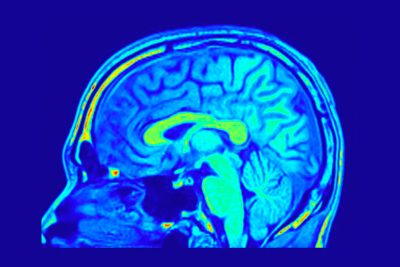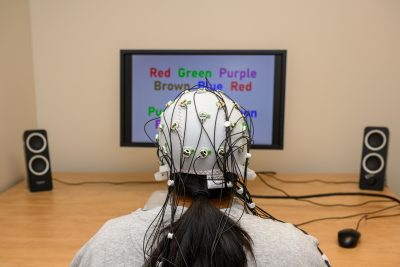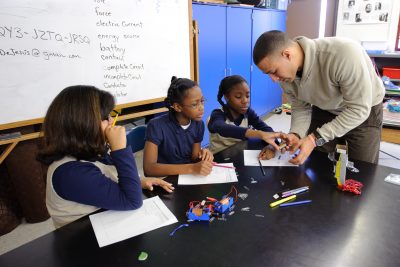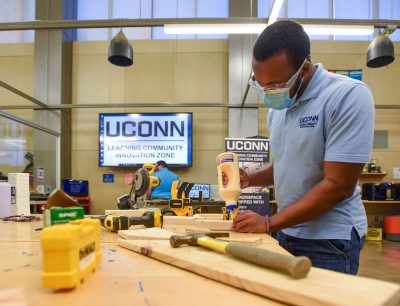Neurodiversity & Neuroscience
UConn isn’t just expanding minds – it’s exploring them. By illuminating the hidden corners of the mind, the University seeks new ways to change how we think.
The University’s expertise spans various subfields, including cognitive neuroscience, neurogenetics, neuropharmacology, and neurodevelopment. Dedicated facilities and institutes like the Brain Imaging Research Center (BIRC), Institute for the Brain and Cognitive Sciences (IBACS), and the Brain and Spine Institute at UConn Health are pivotal in advancing interdisciplinary research, leveraging cutting-edge technologies to study brain function, behavior, and cognition. UConn also offers the nation’s first intraoperative neuromonitoring program, providing a career pathway to an increasingly in-demand healthcare niche.
UConn's neuroscience research is collaborative, integrating insights from psychology, biology, engineering, and data science to address critical questions about neural mechanisms and disorders. Researchers work on groundbreaking projects related to brain plasticity, neurodegenerative diseases, and childhood neural development, contributing to the development of innovative treatments and therapeutic strategies. With state-of-the-art facilities and a commitment to translational research, UConn is at the forefront of discovering new knowledge in neuroscience and applying these findings to improve human health and well-being.

Brain Imaging Research Center (BIRC)
Provides access to state-of-the-art equipment and methods to facilitate new discoveries and innovations in cognitive neuroscience.

Center for Behavioral Education and Research (CBER)
Conducts research that promotes equity and improves educational outcomes for all learners, especially those with or at risk for learning and behavioral difficulties.

Collaborative on Postsecondary Education and Disability (CPED)
Combines research-based evidence and professional training to promote postsecondary education opportunities for students with disabilities.

Connecticut Institute for the Brain and Cognitive Science (IBACS)
Serves as a hub and engine for innovation in the interdisciplinary science of the mind and brain, allowing for cooperative advancement of cognitive science.

Reading and Language Arts Center
Researches the latest in best practices in literacy development to support the future leaders of reading and language arts instruction.

Renzulli Center for Creativity, Gifted Education, and Talent Development
Promotes enjoyment, engagement, and enthusiasm for learning at all levels of education through high-quality research and outreach on innovative teaching approaches.

Werth Institute for Entrepreneurship & Innovation
Instills an inquisitive approach to problem-solving by focusing on interdisciplinary entrepreneurial thinking.